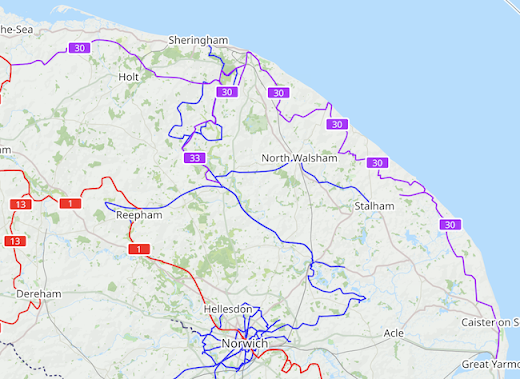Although the British government, no doubt mindful of the coming general election, has this week seemed to backpedal on some of its earlier commitments to ‘sustainability’, the intention is still to ban the sale of any other than electric cars.
Without knowledge of Agenda 2030, this makes no sense at all. Given the decommissioning of our coal-fired power stations and the growing dependence on intermittent electricity provided by wind turbines and solar panels, the National Grid will be unable to cope with the extra demand from EVs. The terrorist attack on the Nord Stream pipelines has exacerbated the situation, since most of Europe is now denied cheap and abundant Russian gas – to the extent that Germany is rapidly deindustrialising.
The batteries in EVs require minerals in quantities that, at the scale envisaged, are not recoverable. Indeed, if the entire British ICE (internal combustion engine) fleet were replaced tomorrow with EVs, there would be insufficient materials to make EV batteries for anyone else in the world. We need not trouble ourselves with the many other reasons why EVs are a dead-end; all we need to understand is that the policy is designed to reduce current levels of personal mobility. In short, most people will not be able to afford their own car. They will have to walk, ride bicycles, and use public transport or communally owned cars.
As the 2030 (or, now, 2035) EV deadline approaches, this is something that country-dwellers need to be thinking about in earnest. Life in Langham at present is difficult for those without a car. They must depend on taxis, the kindness of neighbours or voluntary organisations, and on a grossly inadequate bus service. That is not intended as a criticism of Sanders Coaches: the public funds to provide regular buses are simply not there.
Apart from the 46 bus, the only bit of alternative transport infrastructure we have in Langham is a section of Cycle Route 30, and this was followed last weekend on their bikes by contestants in the North Norfolk Triathlon.
The National Cycle Network was founded by the charity Sustrans (‘sustainable transport’) in 1995 with a £42.5m grant from the National Lottery. It comprises some 13,000 miles of bike-friendly routes, on public roads and rights of way and on permissive paths opened up by private landowners.
Route 30 begins at Copy’s Green, follows the Warham road through Westgate to Binham, takes the Langham road to the church crossroads, then turns left down North Street and right along the Wiveton road. From Wiveton it climbs to Salthouse Heath and goes on to High Kelling, Cromer and ultimately Great Yarmouth.
This is what the route through Langham looks like from a recumbent bicycle (starting from the Wiveton road / Blakeney road crossroads).
The route is well used, especially in summer, by bicycle tourists and others, and passes along mostly quiet, if rather narrow, lanes. These of course must be shared with drivers of motor vehicles, not all of whom are considerate, but signage for Route 30 is all the Langham cyclist gets: something to think about as that other 30 approaches.


No comments:
Post a Comment
Please remember to be polite. Any comment with incendiary content will not make it through moderation.